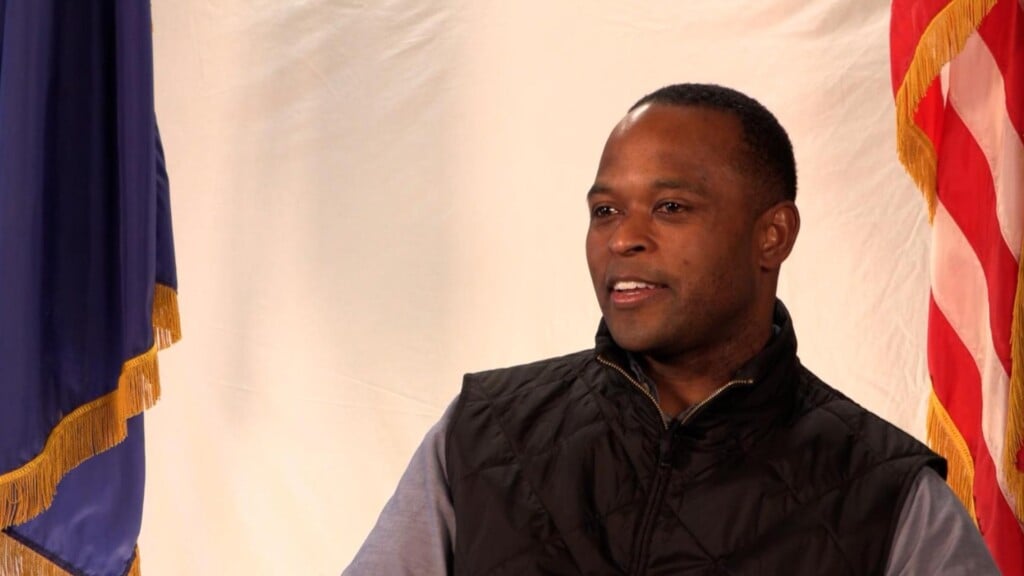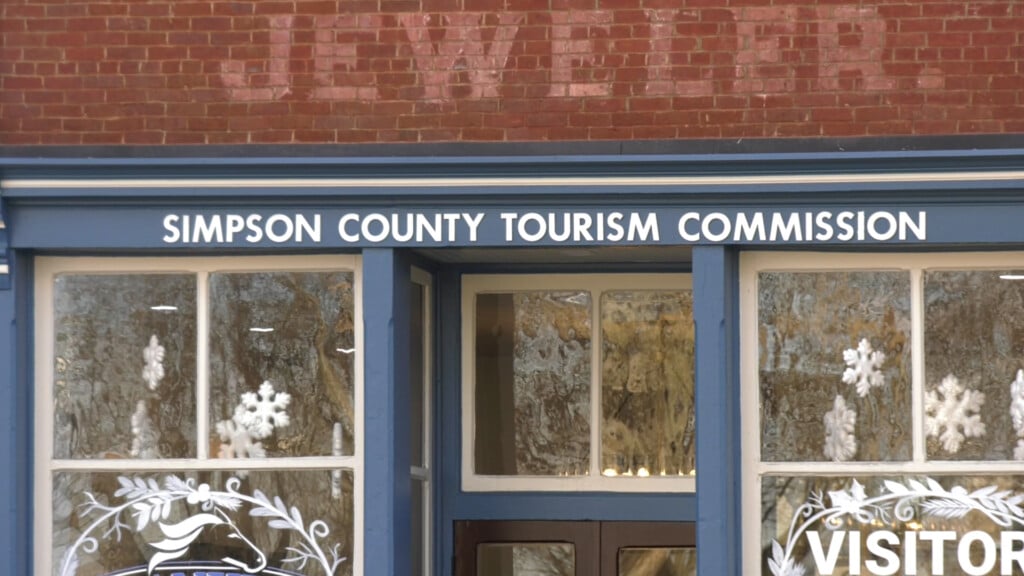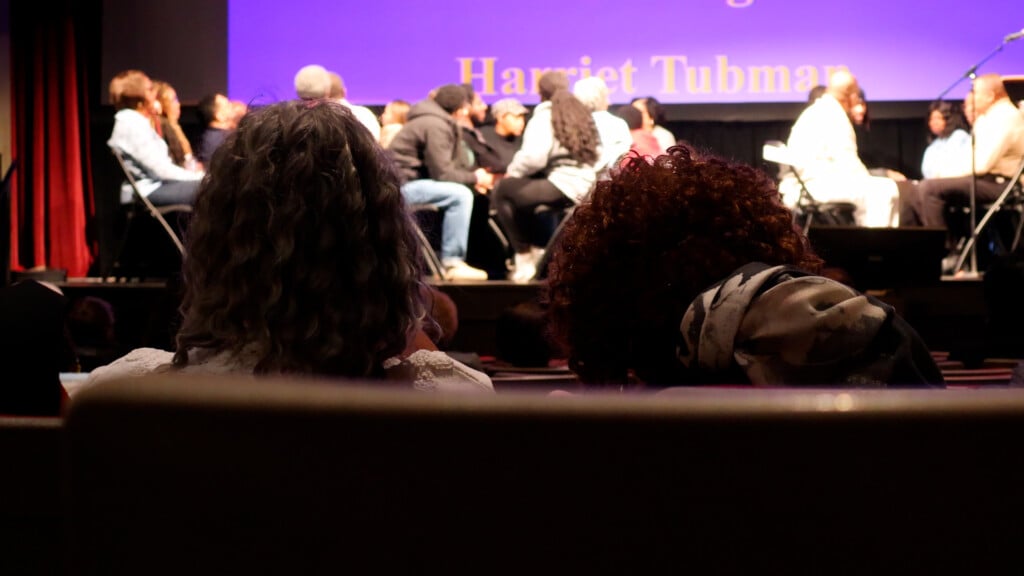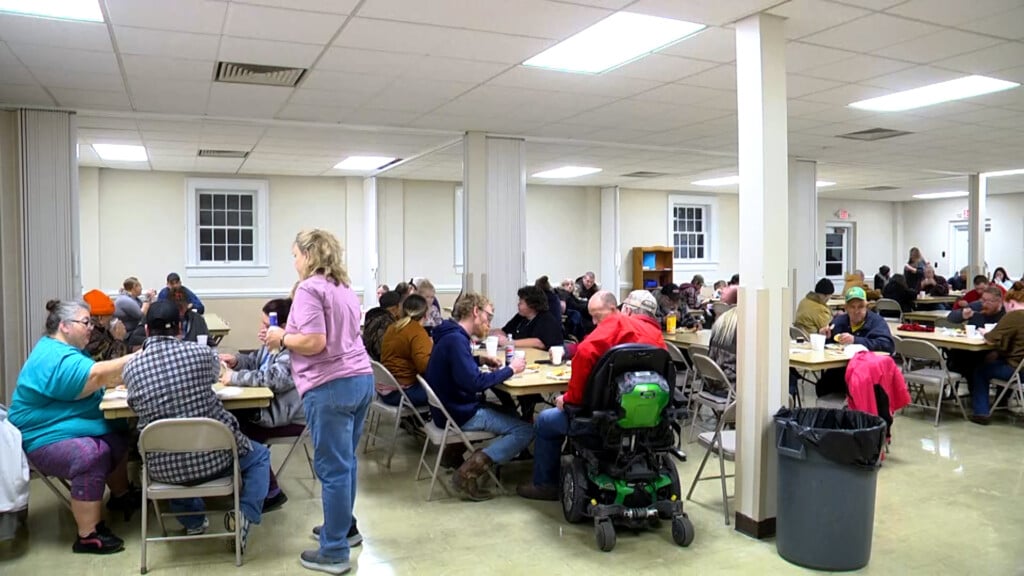Campus community responds to Rittenhouse event
BOWLING GREEN, Ky. – A student collective formed at Western Kentucky University called ‘For The People Advocacy Group’ came together Wednesday to demand change from the administration after the announcement two weeks ago of an event involving conservative activist, Kyle Rittenhouse.
At WKU’s Wetherby Administration Building, the For The People Advocacy Group held a sit in to voice their grievances over conservative figure Kyle Rittenhouse appearing on campus.
Who is Kyle Rittenhouse?
According to the Associated Press, Rittenhouse was “acquitted of killing two people and wounding a third during a 2020 protest against racism and police brutality in Kenosha, Wisconsin, after testifying he acted in self-defense.”
The event Wednesday evening, hosted by Turning Point USA at Western Kentucky University, includes Rittenhouse speaking “about the importance of the Second Amendment and the lies of BLM,” according to TPUSA’s website.
On March 21, WMC reported Rittenhouse “was forced to end his speech early” at the University of Memphis as a result of “loud protests” of hundreds of students, with Rittenhouse being escorted from the scene by campus police and Tennessee Highway Patrol troopers.
What some students had to say
According to For The People Advocacy Group, the university has failed to support the student body on several occasions.
The student-led organization is also calling on the administration to make changes in order to further assure students of all backgrounds that they can feel secure on campus.
The room appeared to share the same sentiment – the university has seemingly “thrown their hands up” and are looking to affect change.
For The People Advocacy Group’s hope is that moving forward, things change for not just students of color but students of similar thought.
A message from the University President
On Monday, March 25, WKU’s president, Dr. Timothy C. Caboni, sent the following message to students, faculty and staff regarding the upcoming speaker event:
“Two weeks ago, a student organization guest speaker announcement captured the attention of many students, faculty, staff and alumni. It also provoked questions about why WKU would allow this event to occur and requests for an institutional condemnation of the speaker.”
“As guardians of free speech, universities have an obligation to establish an environment where a wide range of perspectives are exchanged, even if the ideas presented are different from our own, offensive or even contemptable. Furthermore, as a public university WKU is compelled by law to do so. The Campus Free Speech Protection Act, passed by the Kentucky Legislature and signed into law by the Governor in 2019, prohibits WKU from disinviting speakers who have been invited by students, faculty or staff and obligates the university to ensure that invited speakers are not disrupted or restricted. We cannot tolerate a “heckler’s veto” intended to disrupt or cancel an event and, in turn, suppress the speech of the speaker.
“Any registered student organization may reserve space on our campus to host meetings, events and activities, including guest speakers. However, when individuals or groups visit our public campus, it does not mean that the university supports, endorses or agrees with the views presented. If you disagree with a speaker’s content or character, you have a range of options: attend, listen and question; don’t attend or don’t listen; create counter programming somewhere else on campus that highlights a different perspective; or make your opposition heard through peaceful protest. All these forms of expression will likely occur on our campus this week – supporting the idea that the cure for speech with which we disagree is not less speech but rather more speech. The capacity to disagree is a cornerstone of democracy, more important now than ever in our deeply polarized world.
“In response to those requesting that the university publicly condemn this event, its speaker and content (and to those who do so with other issues of the day), WKU intentionally refrains from engaging in matters tangential to our core mission of educating students, knowledge creation and dissemination. Outlined in the Chicago Principles and the 1967 University of Chicago Kalven Report, institutional neutrality allows universities to create an environment where the free exchange of ideas is not stifled by official institutional statements or comments from leadership.
“Guided by the concept of institutional neutrality, WKU does not take positions on local, national or international issues unrelated to higher education or the university directly – clarifying that students and faculty are the instruments of dissent and critique. The university creates the space for the critics to operate but is not the critic itself. If WKU were to compromise our institutional neutrality in response to donors, alumni, politicians, activists and others, we would jeopardize our faculty and students’ ability to challenge controversial and uncomfortable ideas.
“This week provides us with an opportunity to demonstrate to the broader community that WKU is a place that defends the ideals of free speech, academic freedom and inquiry, even when challenging to do so. Thank you for helping us to do so in a safe and respectful manner that showcases who we are as an institution.”




